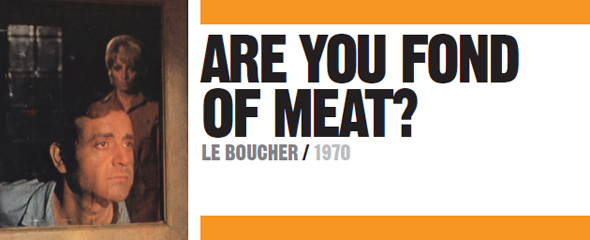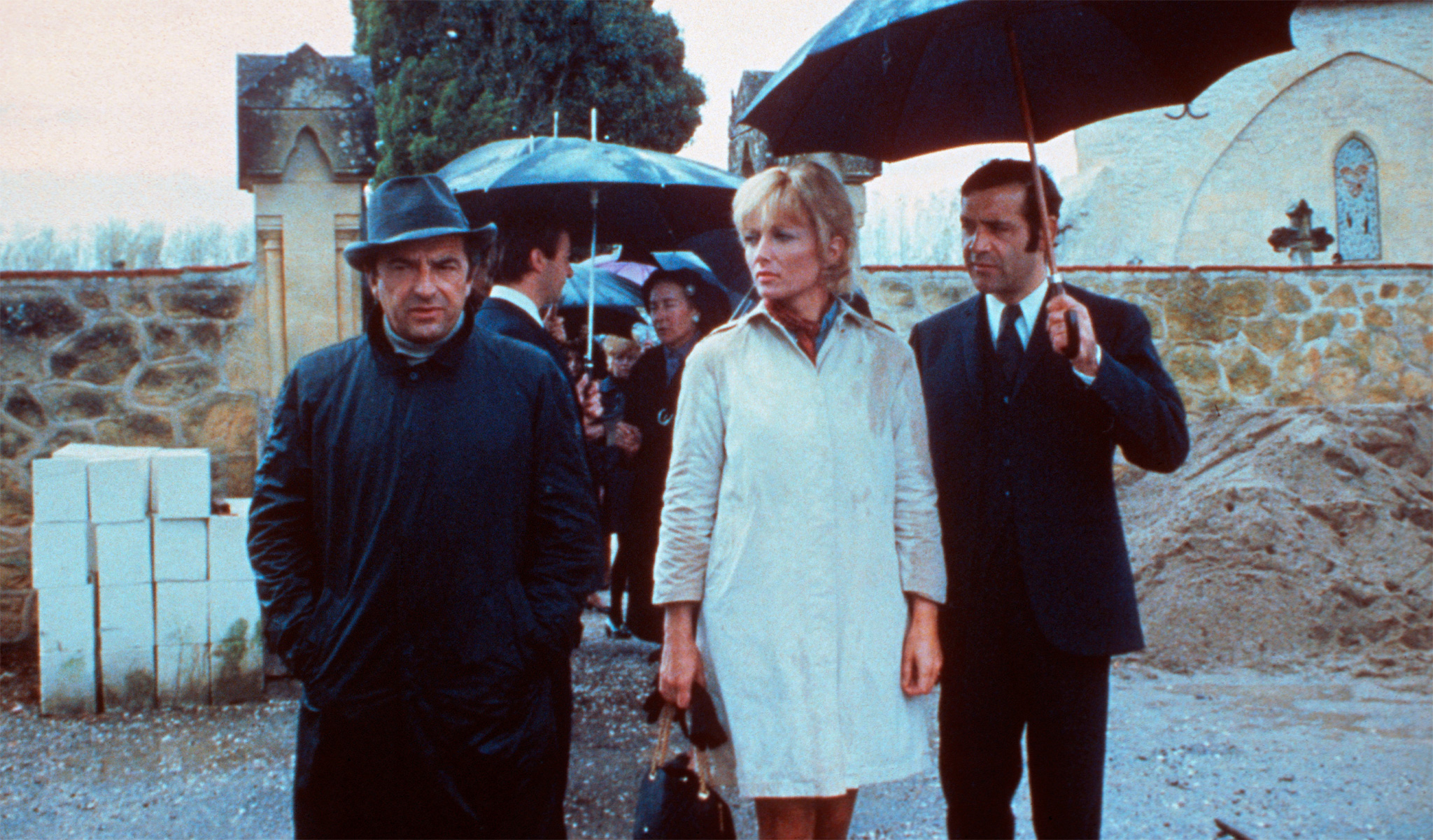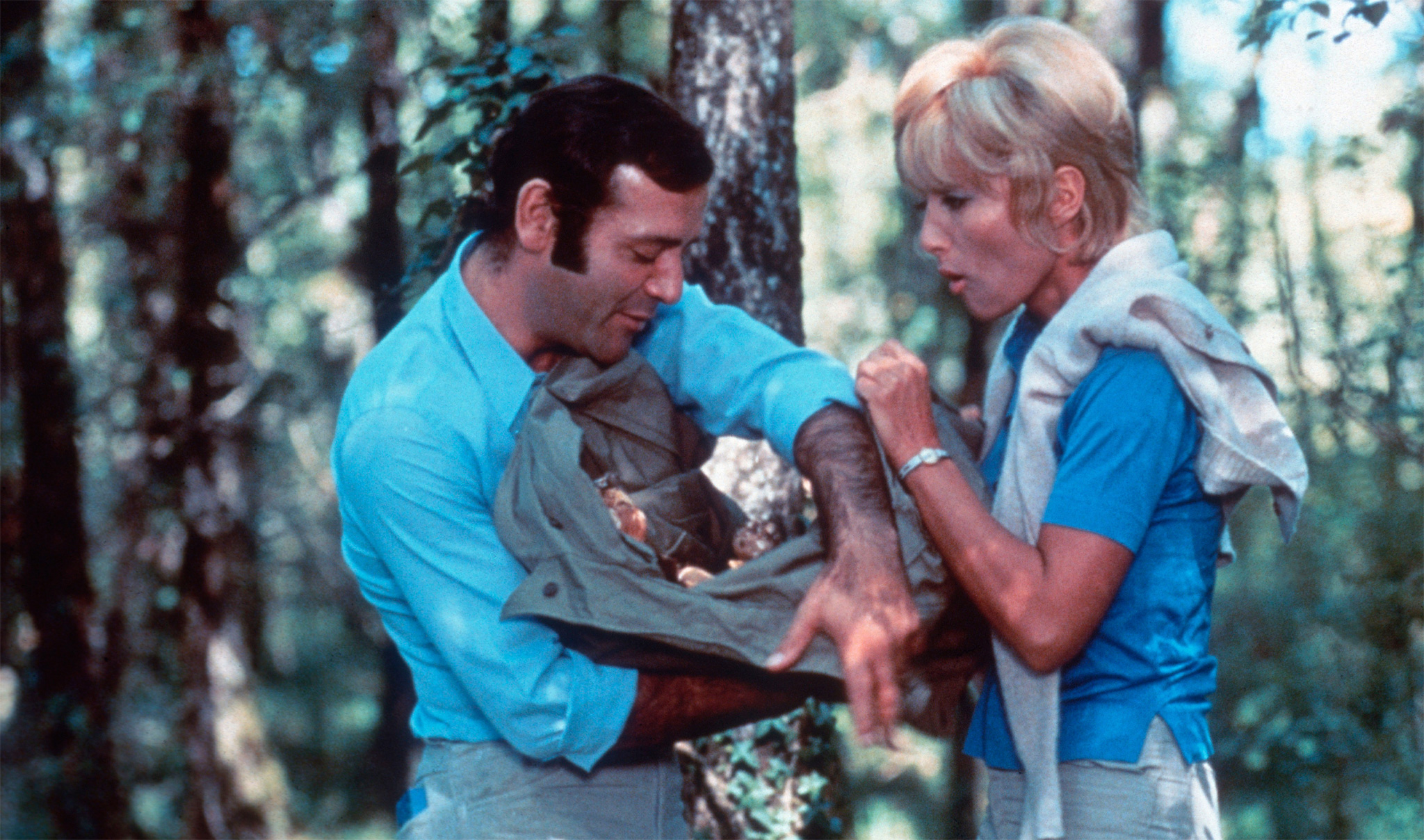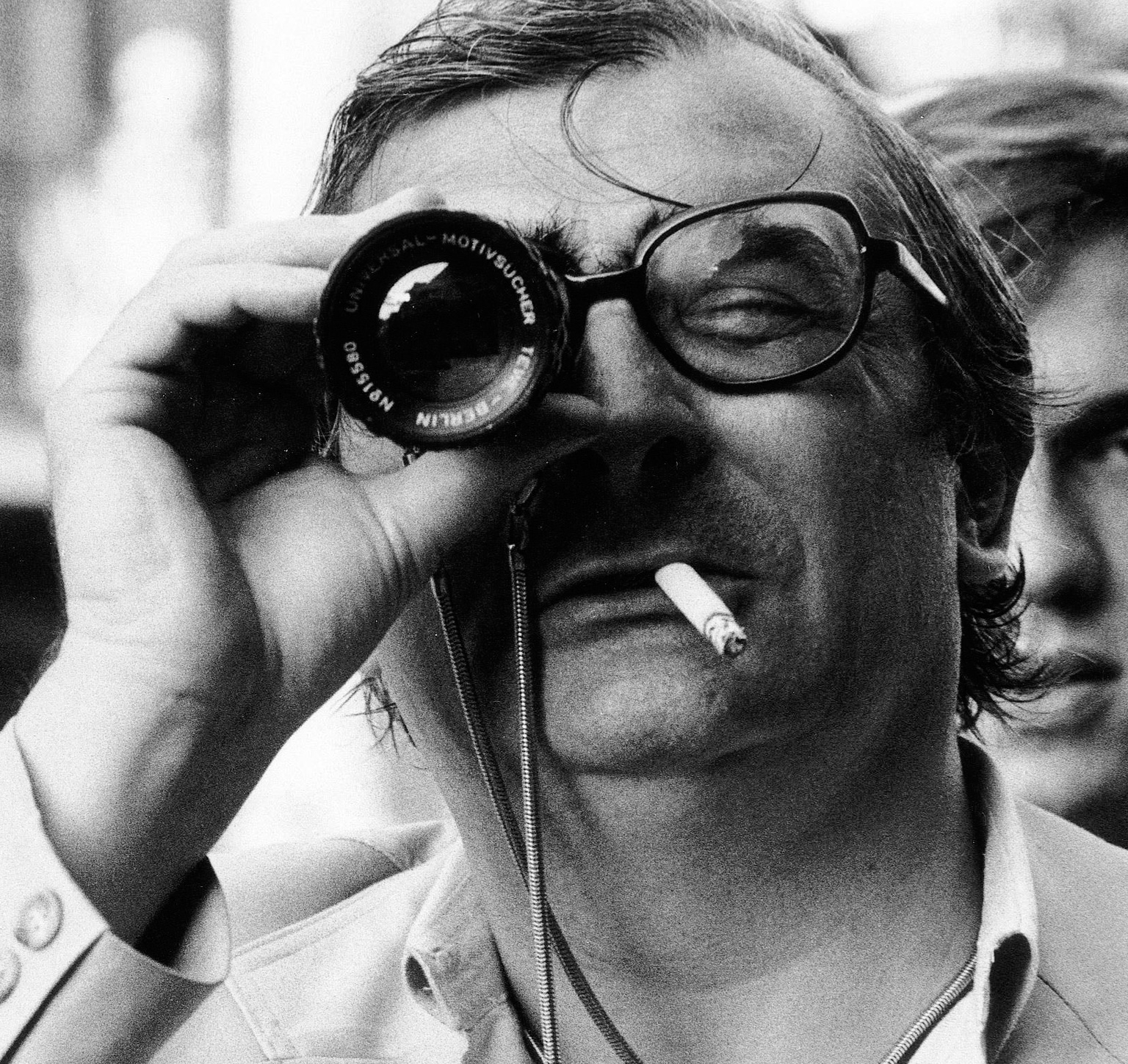The Movie Book (Big Ideas Simply Explained) (2016)


IN CONTEXT
GENRE
Thriller
DIRECTOR
Claude Chabrol
WRITER
Claude Chabrol
STARS
Jean Yanne, Stéphane Audran
BEFORE
1943 Alfred Hitchcock’s Shadow of a Doubt tells the story of a young girl who discovers a terrible secret.
1968 Chabrol’s Les Biches stars Stéphane Audran and Jacqueline Sassard as two women who form a lesbian relationship before both falling for the same man.
AFTER
1970 Chabrol’s next movie, La Rupture, features Audran as a woman whose husband’s family is hatching a deadly plot against her.
In French director Claude Chabrol’s thriller Le Boucher (The Butcher), the stark title immediately raises expectations of brutality and gore. Played by the curiously sympathetic Jean Yanne, the Butcher is Popaul, a veteran of the French colonial wars of the 1950s in Indochina and Algeria, who works at a butcher shop in a rural town. At a friend’s wedding, Popaul meets Hélène (Stéphane Audran), who becomes strangely fond of him. Popaul is open and sensitive about his past, talking of an abusive father and the cruelty of battle.
When a woman is killed in the forest, however, Hélène begins to think of Popaul a little differently, not least because the woman has been stabbed to death with knives, the tools of his trade. And when a second body is found, discovered by one of her own pupils during an idyllic picnic, Hélène finds a lighter that she herself gave Popaul as a present. But instead of handing it to the police, Hélène keeps it, and she is relieved when, later on, Popaul lights one of his many Gauloises with what appears to be the original lighter.
Why wasn’t Hélène scared? This is the dynamic that Chabrol chooses to deal with in a movie that doesn’t so much resemble a woman-in-peril saga as a beauty and the beast story. Comparisons could be made with Alfred Hitchcock’s Shadow of a Doubt (1943), in which a young girl discovers that her favorite uncle is a killer of elderly widows.

Hélène (Stéphane Audran) first meets Popaul (Jean Yanne, on her left) at a wedding. They strike up a close relationship, but it remains platonic despite his clumsy efforts to woo her.
Violent purity
The second murder scene explains the movie’s unusual opening credits, which depict the Cougnac grottoes in southwestern France, home to a series of paintings from the Upper Paleolithic era. Hélène gives her class a guided tour, noting that the paintings were the first step taken by man toward civilization. “Do you know what we call desires when they lose their savage quality?” Hélène asks. “Aspirations” is her answer. The teacher seems to respect Cro-Magnon man and his violent purity, which suggests a lot about her fascination with Popaul.
The final act brings revelations and confrontations in an intense scene that shows as much about the couple’s similarities as their differences. The audience is left grappling with more questions than answers. In the very last shot, Chabrol returns to a scene of the River Dordogne, with which he had started the movie. “I adore symmetry,” Chabrol once said. “But I’m not for simple symmetry. Symmetry doesn’t mean putting one chandelier on the right and another on the left.” The credits roll, and we are left to wonder about the nature of loyalty, the desires that take the people experiencing them by surprise, and the dark mystery of what goes on between couples.
"Le Boucher has us always thinking. What do they know, what do they think, what do they want?"
Roger Ebert

Hélène is drawn to Popaul and his gauche advances despite, or perhaps because of, the fact that he has been damaged by his violent past.
CLAUDE CHABROL Director

Claude Chabrol was born in 1930 in Sardent, in rural France, where he ran a movie club as a child. Before directing his own movies, he worked as a critic for influential magazine Cahiers du Cinéma. Like the other directors of the French New Wave who emerged from that magazine, Chabrol was an admirer of Alfred Hitchcock, but he was the only one of his peers to gravitate toward the thriller, making a series of murder mysteries until his death in 2010.
Key movies
1970 Le Boucher
1971 Just Before Nightfall
1994 L’Enfer
What else to watch: Le Corbeau (1943) ✵ Shadow of a Doubt (1943) ✵ Les Biches (1968) ✵ The Unfaithful Wife (1969) ✵ La Rupture (1970) ✵ Just Before Nightfall (1971) ✵ Wedding in Blood (1973) ✵ L’Enfer (1994)